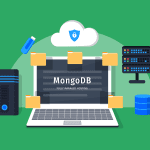Small and medium-sized businesses (SMBs) are always falling victim to market pressures, but big data processing is transforming the way these companies deal with these pressures. Predicting demand is never easy, especially when it's done in the traditional manner. However, a few recent breakthroughs in the field of statistics are helping to dramatically alter the way that … [Read more...] about How Big Data is Improving Demand Forecasting Among SMBs
Big Data
Learn everything you need to know about big data. Find out how companies are using this revolutionary technology and what it means for your business strategy.
Don’t Mistake A Legacy Skillset For A Legacy Mindset
It goes without saying that the analytics and data science space is undergoing change at an unprecedented pace. At the same time, many organizations have a lot of people who are still working in the same way using the same skills they have had for years. Organizations certainly need to move beyond those legacy skillsets and the need for a skills update is real. However, I see … [Read more...] about Don’t Mistake A Legacy Skillset For A Legacy Mindset
MongoDB Acquires mLab? ?What Are The Different MongoDB Hosting Alternatives?
If you're an mLab customer, you've likely heard the news that they've been acquired by MongoDB and your clusters are going to be migrated to MongoDB Atlas sometime in the next 12 months. While some are excited, others indifferent, and a few are just waiting to see how it pans out, there are a good number of users who are concerned about what this means for their MongoDB … [Read more...] about MongoDB Acquires mLab? ?What Are The Different MongoDB Hosting Alternatives?
Understanding Data Fusion: The Challenges and A Way Forward
Data fusion, the art of merging information from multiple sources to create sophisticated models, presents significant potential benefits for a range of industries. This is a fundamental problem in many domains as one tries to bootstrap a data economy. Bringing together heterogeneous datasets, however, poses several conceptual and technical questions, particularly when … [Read more...] about Understanding Data Fusion: The Challenges and A Way Forward
Latest PostgreSQL Trends: Most Time-Consuming Tasks & Important Metrics to Track
PostgreSQL, the fourth most popular database and DBMS of the Year in 2017, has exploded in popularity amongst the development and database communities across the world. Stealing market share from leaders Oracle, MySQL, and Microsoft SQL Server, PostgreSQL hosting is also highly leveraged by new businesses in exciting spaces like IoT, e-commerce, SaaS, analytics, and more. Read … [Read more...] about Latest PostgreSQL Trends: Most Time-Consuming Tasks & Important Metrics to Track
What is big data?
Big data is a term that refers to the massive amount of digital data created and shared every day. Big data can transform how we live, work, and communicate. It can be used to improve everything from public health and urban planning to business and marketing.
Big data is also changing the way we think about privacy and security. The volume, velocity, and variety of big data present challenges and opportunities for organizations and individuals. Regardless, big data is here to stay, and its impact will only continue to grow in the years to come.
What is big data analytics?
Big data analytics is the process of turning large, complex data sets into actionable insights. Businesses use various analytical tools and techniques, including machine learning and statistical analysis, to do this.
Big data analytics can be used to improve decision-making in areas like marketing, operations, and customer service. It can also be used to identify new business opportunities and optimize existing processes. With the help of big data analysis, businesses can gain a competitive edge by using their data better.
Want to learn more about big data? Datafloq has courses available. Contact us to get started.
When was big data introduced?
The term big data was coined in the 1990s, with some giving credit to John Mashey for popularizing the term. However, the concept of big data has been around for much longer.
Where does big data come from?
In the early days of computing, scientists and businesses began to realize that the amount of data being generated was increasing exponentially. As a result, they began to develop new methods for storing and processing data.
Over time, these methods have become increasingly sophisticated and have played a key role in enabling businesses to make sense of vast amounts of information. Today, big data is used in various industries, from retail to healthcare, and its importance is only likely to grow in the years to come.
What are examples of big data?
One of the most common examples of big data is social media data. With over 2 billion active users, Facebook generates a huge amount of data every day. This includes information on user interactions, posts, and even location data. Analyzing this data can help companies better understand their customers and target their marketing efforts.
Another example of big data is GPS signals. These signals are constantly being generated by devices like cell phones and fitness trackers. When combined with other data sets, GPS signals can be used to provide insights into everything from traffic patterns to human behavior. Finally, weather patterns are another type of big data set. By tracking these patterns over time, scientists can better understand the impact of climate change and develop strategies for mitigating its effects.
How do companies use big data?
Companies use big data in marketing, product development, and customer service. By analyzing large data sets, businesses can identify patterns and trends that would be otherwise difficult to spot. For example, a company might use big data to track customer behavior patterns to improve its marketing efforts.
Alternatively, a company might use big data to improve its products by identifying areas where customers are most likely to experience problems. For instance, big data can be used to improve customer service by finding pain points in the customer journey. Ultimately, big data provides companies with a valuable tool for gaining insights into their business operations.






